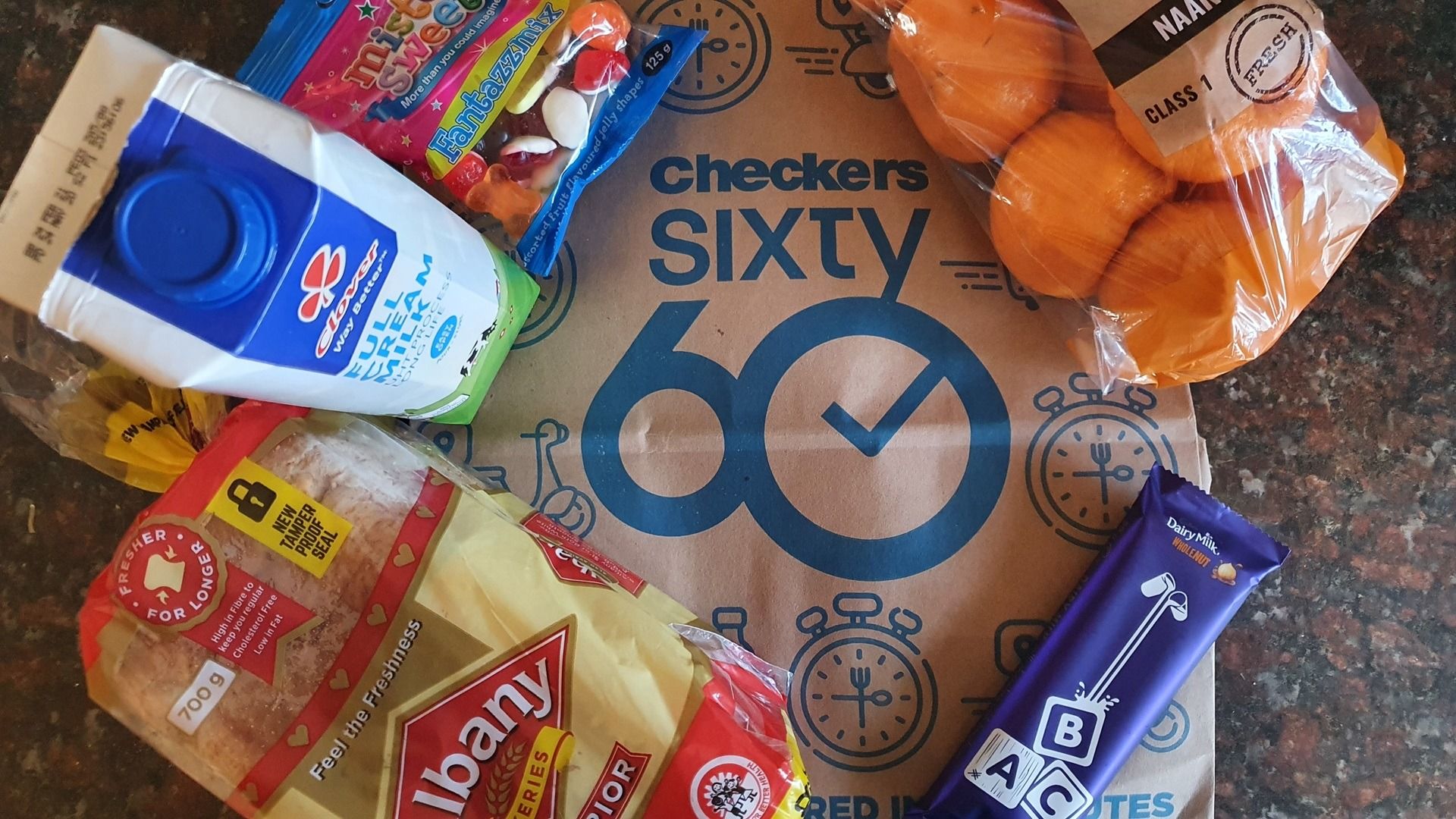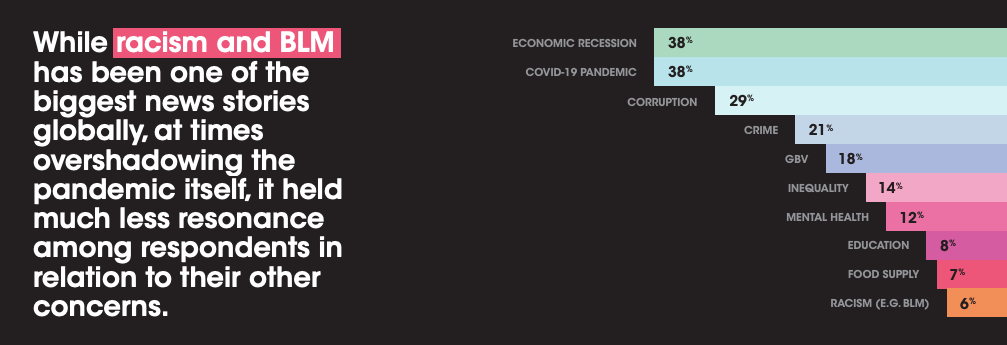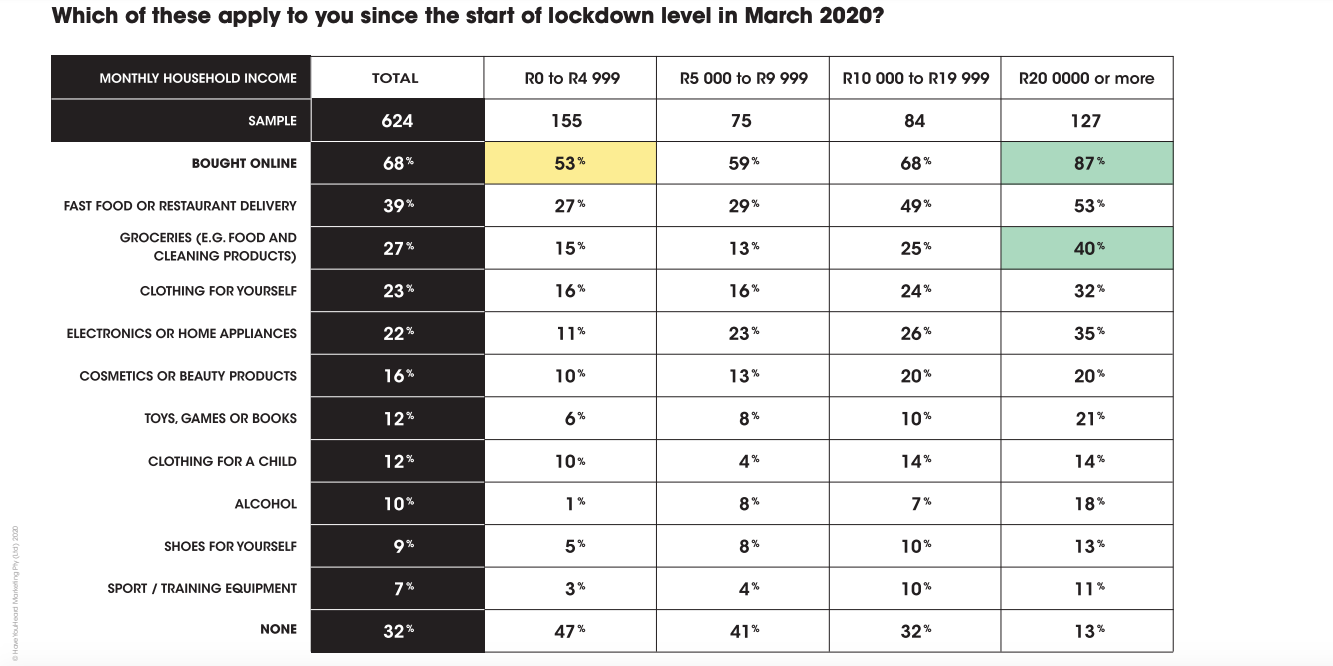How South African consumers have changed in 2020
68% of respondents did one very important thing since the start of lockdown

If you want to put me in a bad mood, then say the phrase 'the new normal' to me.
No silly statement is as pointless, and nauseating, than this one.
Saying that there was a uniform standard of normality in South Africa and that somehow our collective experience of having endured a global coronavirus pandemic will create and new uniform standard of conformity, is misleading and utter nonsense.
Depending on where you live, who you are, where you're from, your gender, your race, your worldview - your experience of 'normal' in South Africa is subjective.
Some new consumer research, from the South African agency HaveYouHeard, reinforces this.
When researchers asked a cross-section of South African what their greatest concerns were regarding the future of the country, they noted that there was a sharp contrast in opinion depending on the age of the person being asked.

'Whilst other age groups rated the economy and COVID-19 as their 2 main concerns, the 50 years plus segment named Corruption as their chief concern.
This age bracket who are more at risk to COVID-19 than others, rated the pandemic and health risk as only their 4th biggest concern (there was no difference across race) with Crime a very close 3rd.
This highlights how they are most sensitive to corruption, crime and the economic impacts inflicted by lawlessness in SA as well as their slight disregard towards the threat of infection to their health.
In contrast, whilst the 18-24year-old segment were most concerned about the economic recession and the COVID-19 pandemic, they showed less concern for corruption and crime.
However, multiple sources and historic data highlight that the youth are often hit harder by economic recession, with youth unemployment rates rising faster than the overall rates. This may be based on different sources of information feeding each generation - traditional media will cover and focus on crime and corruption, whilst social media does not.' - via HaveYouHeard

BLM and GBV are big news stories internationally - often times it feels like these issues are trumping the global concern about the virus, but in South Africa these themes are nowhere near as worrying as the collective anxiety we all have about the economic recession.

68% of respondents did one very important thing since the start of lockdown
Since the beginning of lockdown in March 2020 - what behaviour change have consumers undertaken as a result?

Yes - a lot of people started buying groceries online during lockdown. And the big winner in that change in consumer behaviour? The Checker Sixty60 service.
The wealthy are using the Checkers Sixty60 app in a big way; not to replace their usual in-store retail experience, but to supplement it.
How will life be different post-Covid?
'Much has been made about the ‘new normal’ and the drastic impact on consumer behaviour.
However, in reality, there has been very little change with core human drivers remaining constant and therefore not creating the post apocalyptic world many anticipated/predicted.
The pandemic, reinforced by a recession, has not led to a host of new behaviours. But, given behaviour is influenced largely by how we feel and with the major impact of COVID-19 being on how we feel (our health, our survival, our wallet, our status all being threatened), this will start driving different behaviours and how we respond to the same stimulus, messaging and interaction will likely change.
More activity is now happening online and e-commerce adoption has been fast forwarded several years in the space of just a few months, but the core drivers of being human are now more important than ever. People are more anxious and stressed than ever before. However, we are seeing the mood lift as the country makes progressive steps forward back towards some semblance of normality with the easing of Lockdown restrictions.' - via HaveYouHeard
So the new normal looks pretty much like the old normal but with more time at home, shopping online for locally produced goods whilst worrying about whether or not you'll still have a job in a year's time.

